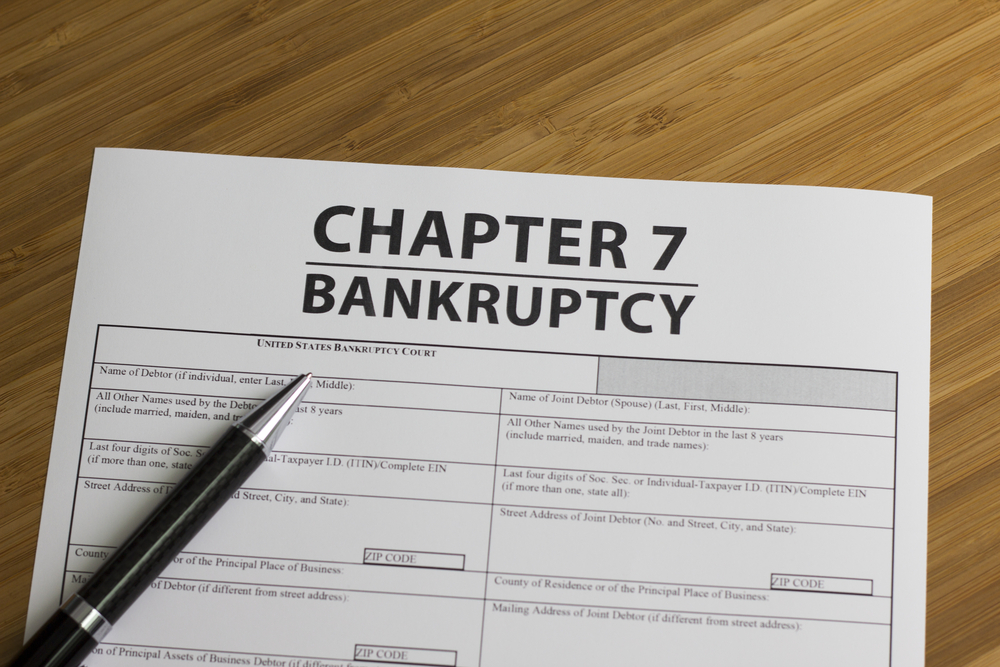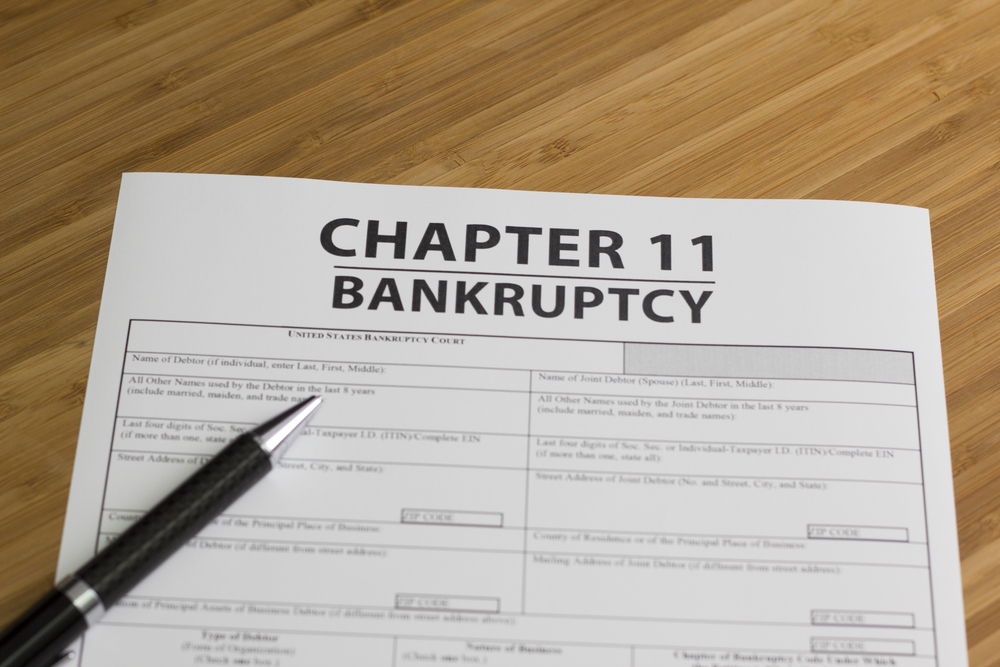New Amendments to Bankruptcy Rules Effective December 1, 2020
By Richard E. Weltman
 On December 1, 2020, several amendments to the Federal Rules of Bankruptcy Procedure took effect. These amendments largely modify rules governing bankruptcy appeals, but also importantly impact Rules 2002 and 2004. Some court filing fees also increased slightly.
On December 1, 2020, several amendments to the Federal Rules of Bankruptcy Procedure took effect. These amendments largely modify rules governing bankruptcy appeals, but also importantly impact Rules 2002 and 2004. Some court filing fees also increased slightly.
Here are the rule changes:
Rule 2002, which governs notice to creditors and other parties, has been amended to (1) add cases under chapter 13 to the rule requiring notice of orders confirming plans; (2) distinguish between voluntary and involuntary cases in connection with notice to creditors with as-filed claims to conform with the proof of claim deadlines under Rule 3002(c); and (3) replace “pursuant” with “under” in several places, most likely to improve readability.

 A Houston Bankruptcy Judge’s recent decision brings into question the need for – and efficacy of – the longstanding Jay Alix Protocol. In re McDermott Int’l Inc., 20-30336 (Bankr. S.D. Tex. May 20, 2020).
A Houston Bankruptcy Judge’s recent decision brings into question the need for – and efficacy of – the longstanding Jay Alix Protocol. In re McDermott Int’l Inc., 20-30336 (Bankr. S.D. Tex. May 20, 2020).  In a recent opinion of note, the Bankruptcy Court for the Eastern District of California sided with the majority of courts in holding section 362(c)(3)(A) of the Bankruptcy Code does not apply to property of a debtor’s estate. In re Thu Thi Dao, Case No. 20-20742 (Bankr. E.D. Cal. May 11, 2020). Read the full opinion
In a recent opinion of note, the Bankruptcy Court for the Eastern District of California sided with the majority of courts in holding section 362(c)(3)(A) of the Bankruptcy Code does not apply to property of a debtor’s estate. In re Thu Thi Dao, Case No. 20-20742 (Bankr. E.D. Cal. May 11, 2020). Read the full opinion  Weltman & Moskowitz, LLP was retained by one of the few remaining dairies located in New York State to file a chapter 11 bankruptcy petition (“Debtor” or “Client”). Due to a downturn in the industry, Client was forced to close its doors after more than 150 years of operating its family-owned business. While production and other operating costs had steadily increased, sales had significantly decreased leaving the business unprofitable. When the bankruptcy was filed, it was anticipated the business would be sold to a previously-located purchaser (“Purchaser”) with whom Client had been negotiating for several months. Unfortunately, as Client’s business continued to lose customers and profitability fell, the Client was forced to renegotiate the sale price to an exponentially lower number and, ultimately, the Purchaser withdrew its offer entirely. As a result, the client was obliged to liquidate its few hard assets (the client’s business value was primarily tied to business relationships) and collect accounts receivable with a new goal of filing a liquidating plan under chapter 11.
Weltman & Moskowitz, LLP was retained by one of the few remaining dairies located in New York State to file a chapter 11 bankruptcy petition (“Debtor” or “Client”). Due to a downturn in the industry, Client was forced to close its doors after more than 150 years of operating its family-owned business. While production and other operating costs had steadily increased, sales had significantly decreased leaving the business unprofitable. When the bankruptcy was filed, it was anticipated the business would be sold to a previously-located purchaser (“Purchaser”) with whom Client had been negotiating for several months. Unfortunately, as Client’s business continued to lose customers and profitability fell, the Client was forced to renegotiate the sale price to an exponentially lower number and, ultimately, the Purchaser withdrew its offer entirely. As a result, the client was obliged to liquidate its few hard assets (the client’s business value was primarily tied to business relationships) and collect accounts receivable with a new goal of filing a liquidating plan under chapter 11. n a recent opinion of significance, the Bankruptcy Court for the Eastern District of New York held that a court cannot legitimize a void foreclosure sale with a nunc pro tunc order. In re David Telles, Case No. 20-70325 (Bankr. E.D.N.Y. April 30, 2020). Read the full opinion
n a recent opinion of significance, the Bankruptcy Court for the Eastern District of New York held that a court cannot legitimize a void foreclosure sale with a nunc pro tunc order. In re David Telles, Case No. 20-70325 (Bankr. E.D.N.Y. April 30, 2020). Read the full opinion  We have previously reported on the judicial treatment of student loan dischargeability in bankruptcy. To this end, we have analyzed how federal courts have interpreted section 523(a)(8) of the Bankruptcy Code, which prohibits bankruptcy courts from discharging most student loan debt “unless excepting such debt from discharge under this paragraph would impose an undue hardship on the debtor and the debtor’s dependents.” 11 U.S.C. § 523(a)(8). In a recent decision from the Southern District of New York Bankruptcy Court, Chief Judge Cecilia Morris analyzed the treatment of student loan debt in bankruptcy under the “undue hardship” exception of section 523(a)(8) of the Bankruptcy Code. Chief Judge Morris determined that, based on the Brunner test, a debtor with a gross annual income of $37,500 could discharge over $220,000 of student loan debt. In re Rosenberg, Case No. 18-09023 (Bankr. S.D.N.Y. Jan. 7, 2020). Read the full opinion
We have previously reported on the judicial treatment of student loan dischargeability in bankruptcy. To this end, we have analyzed how federal courts have interpreted section 523(a)(8) of the Bankruptcy Code, which prohibits bankruptcy courts from discharging most student loan debt “unless excepting such debt from discharge under this paragraph would impose an undue hardship on the debtor and the debtor’s dependents.” 11 U.S.C. § 523(a)(8). In a recent decision from the Southern District of New York Bankruptcy Court, Chief Judge Cecilia Morris analyzed the treatment of student loan debt in bankruptcy under the “undue hardship” exception of section 523(a)(8) of the Bankruptcy Code. Chief Judge Morris determined that, based on the Brunner test, a debtor with a gross annual income of $37,500 could discharge over $220,000 of student loan debt. In re Rosenberg, Case No. 18-09023 (Bankr. S.D.N.Y. Jan. 7, 2020). Read the full opinion  Whether a mortgagee has standing to foreclose on a home loan is a frequently litigated issue in mortgage foreclosure actions in New York. Simply put, a mortgage lender has standing to foreclose on a promissory note if it is the holder of the note at issue at the time the foreclosure action is commenced. As is set forth in more detail below, a recently enacted law in New York provides that the defense of “lack of standing” in a foreclosure action is not waived if the defendant fails to raise the defense at the start of the litigation, thus introducing a new level of uncertainty in foreclosures and possibly prolonging an already lengthy, and costly, procedure for lenders.
Whether a mortgagee has standing to foreclose on a home loan is a frequently litigated issue in mortgage foreclosure actions in New York. Simply put, a mortgage lender has standing to foreclose on a promissory note if it is the holder of the note at issue at the time the foreclosure action is commenced. As is set forth in more detail below, a recently enacted law in New York provides that the defense of “lack of standing” in a foreclosure action is not waived if the defendant fails to raise the defense at the start of the litigation, thus introducing a new level of uncertainty in foreclosures and possibly prolonging an already lengthy, and costly, procedure for lenders.  By: Michael L.
By: Michael L. In a recent opinion, the Bankruptcy Court for the Northern District of New York ordered the reduction of post-petition attorney’s fees payable to a lender by nearly half.
In a recent opinion, the Bankruptcy Court for the Northern District of New York ordered the reduction of post-petition attorney’s fees payable to a lender by nearly half. 






